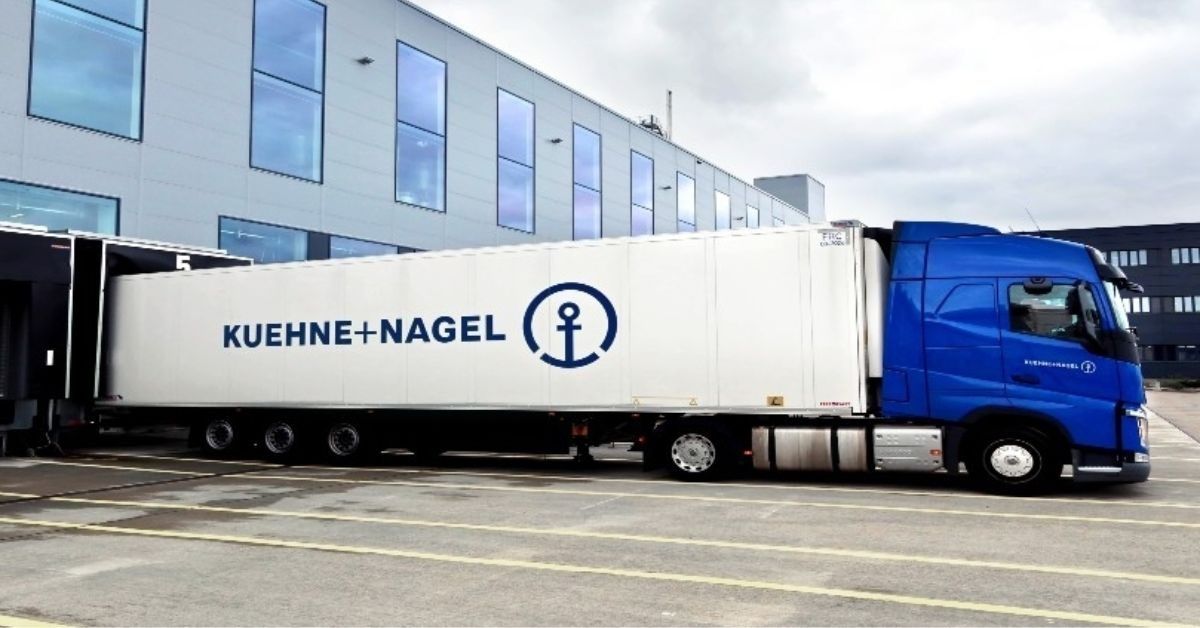“The logistics industry as a whole is now better equipped at sustaining the macroeconomic changes of various geographies, despite the slowing of global economic activity,” says Coen Van Der Maarel, Kuehne+Nagel’s Managing Director for India, Sri Lanka & Maldives.
Switzerland-based Kuehne+Nagel, one of the leading logistics providers in the world with more than 80,000 employees at over 1,300 sites in over 100 countries, is celebrating 25 years of its presence in India.
Post pandemic, The logistics industry as a whole is now better equipped at sustaining the macroeconomic changes of various geographies, despite the slowing of global economic activity. Businesses are taking advantage of market fluctuation to reduce the risk of unanticipated supply chain disruptions and to remain competitive. In such a situation, organisations can thrive if they take measures such as encouraging AI skills to save expensive hands-on staff time for daily operations and investing in infrastructure automation.
Opportunities & challenges
There are many opportunities and challenges. For one, the logistics and shipping industries are no longer dominated by men. Many organisations prioritise diversity and inclusion when hiring.
Two, businesses have felt a strong need for incorporating technology to increase their operational efficiency. Technology such as blockchain, IoT, Big Data and Cloud are helping companies to bring real-time integrated service for a seamless customer experience. Also, other time-intensive tasks, including payments, document transfers, and processes, have become instantaneous, bringing down the overall logistics costs.
Three, the logistics sector will play a key role in achieving SDG 2030. Logistical processes can generate various wastes, in addition to using transport emitting CO2 in large quantities. Sustainable logistics seeks ways to reduce these impacts, adding new ways of working that take this objective into account. This includes the adoption of electric vehicles and reuse packaging, and investing in waste recycling for reducing carbon emission through sustainable aviation fuel for air fleets and biofuels for sea freight.
As for challenges, the majority of businesses lag in implementing technology at the operational level. Furthermore, due to the high cost of logistics technology, only large organisations are able to afford it. Also, customers expect their logistics partners to assist them in resolving issues and advancing in a competitive market throughout the shipping and delivery process.
They would like to have the option of expedited freight, such as two-day or same-day delivery. To respond to changing customer needs and deliver top-notch services, logistics companies need to have systems and procedures in place.
Technology
Technology is a significant force that is altering the dynamics of the industry. We’ve seen businesses making significant investments in supply chain information systems such as point-of-sale software (to gather consumer demand data) and applications such as AI/ML/Data Analysis (to gain visibility into upstream product movement) to satisfy customer demands. In a Supply Chain 4.0 world, smart factories are predicted, which will use technology like real-time analytics, automation and other similar concepts to make the process easier and the outcomes more cost-efficient. Companies will be able to complete tasks quickly and maximise business potential by integrating AI and machine learning. Excellent data accuracy and value-added services are being provided by the technological integration of business processes, which is translating into rich customer experiences. We continue to invest in technology such as Big Data and predictive analytics. The commoditisation of services is not something we foresee shortly. The adoption of technologies by market participants is becoming more important as they strive to provide the best possible customer service while boosting operational effectiveness and cutting costs
Growth plans
In the future, we will expand our footprint to second and third tier cities where we want to make sure that we ensure customer proximity to not only large companies but also many SMEs and start-ups.
In India, we have started to do our bit to ensure we are well aligned with the global initiatives. Launching of electric vehicles for our short-haul transfers across major cities has been one such achievement. Sustainable Aviation Fuel (SAF) plays a vital role in achieving a transition to net-zero flying and achieving emission reduction goals across the aviation industry.
Apart from securing 21 million litres of SAF, Kuehne+Nagel recently became the first air logistics provider to offer customers the option to purchase SAF for all air freight logistics services, across all its platforms and channels — online or offline.
The maritime industry is also pushing towards using alternative cleaner fuels to reduce carbon emissions as much as possible. Kuehne+Nagel’s biofuel concept enables customers to immediately ship their goods carbon neutral. Following the same principle as in air freight where we offer SAF as an alternative fuel, Kuehne+Nagel offers the Mass-Balance-Concept allowing allocation of fully traceable biofuel contingents to cargo shipped on a regular fuel vessel.







